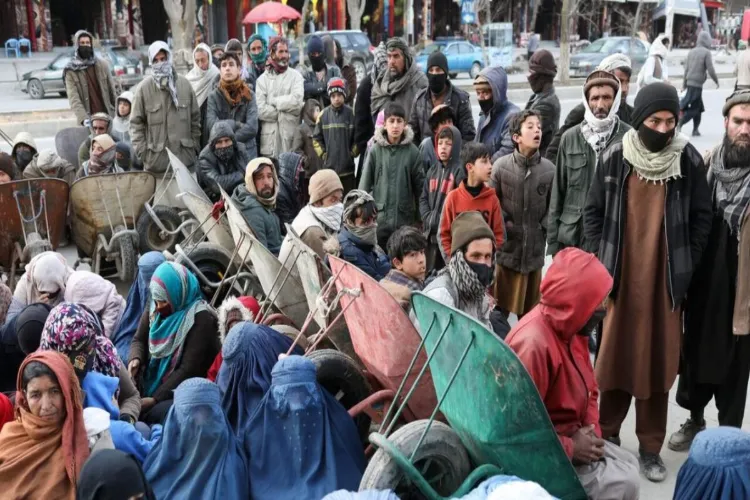Kabul
The World Food Programme (WFP) has once again raised alarm over the worsening humanitarian crisis in Afghanistan, stating that ten million people are in urgent need of food assistance this summer, but only one million can be supported due to funding shortages, Tolo News reported.
The UN-affiliated agency's warning comes amid a sharp decline in international aid, leaving millions of Afghan families grappling with poverty, malnutrition, and economic instability. Experts believe the solution lies in improving international relations and effectively utilizing Afghanistan's natural and human resources.
"To curb poverty, we must consider two key strategies: first, maintaining constructive and effective international relations; and second, utilizing both renewable and non-renewable natural and human resources efficiently. Therefore, with proper management, these resources must be used wisely and effectively," said Abdul Zahoor Modabber, an economic affairs analyst.
Afghanistan continues to top the list of countries drawing global humanitarian concern following recent political changes. According to Tolo News, despite the increase in urgent needs, many Afghans remain without access to aid.
Mohammad Javid, a resident of Kabul, said: "If there were aid, we could manage. Even without work, we somehow got by. But when there is work, we don't need aid. There are plenty of street carts, and they distribute cards to people but we don't have any connections to get one."
The Ministry of Economy claims to have initiated programs aimed at reducing poverty and unemployment, which it says could alleviate some of the nation's pressing challenges.
"Simply distributing food aid cannot fully address the needs of our people. Instead, lifting economic sanctions and international support for programs that strengthen families, create jobs, and enhance purchasing power can lead to real economic improvement," said Abdul Rahman Habib, spokesperson for the Ministry of Economy.
According to Tolo News, the key drivers of poverty and hunger in Afghanistan include soaring unemployment, reduced foreign assistance, natural disasters, and lack of access to essential health and education services. These factors have led to widespread displacement and forced many children into labor.

